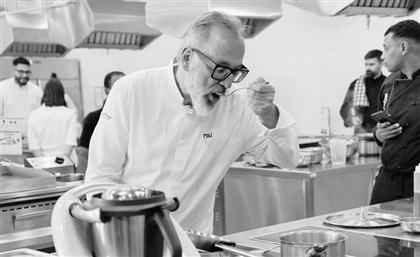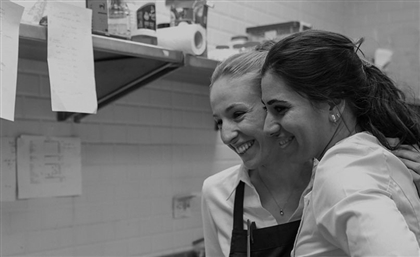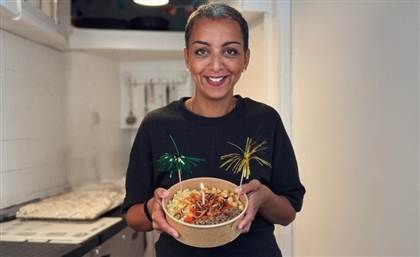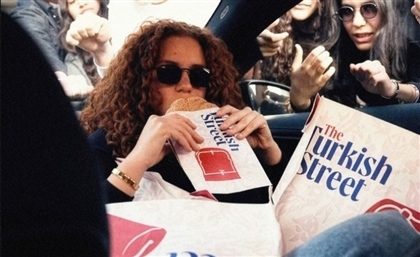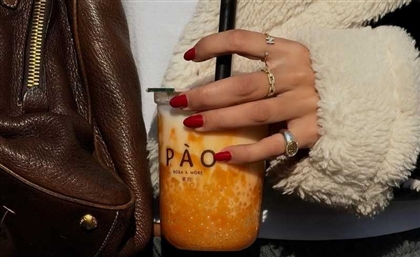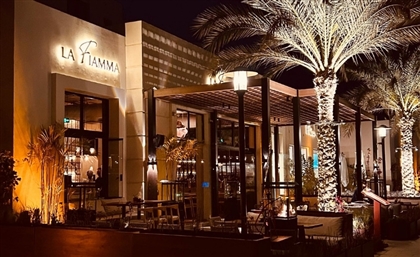Tamara Rigo Opens 35 Flavors of El Gouna With Zero-Waste Pastry Class
At 35 Flavors of El Gouna, Italian chef Tamara Rigo opens the programme with a precise, zero-waste pastry masterclass for young Red Sea chefs
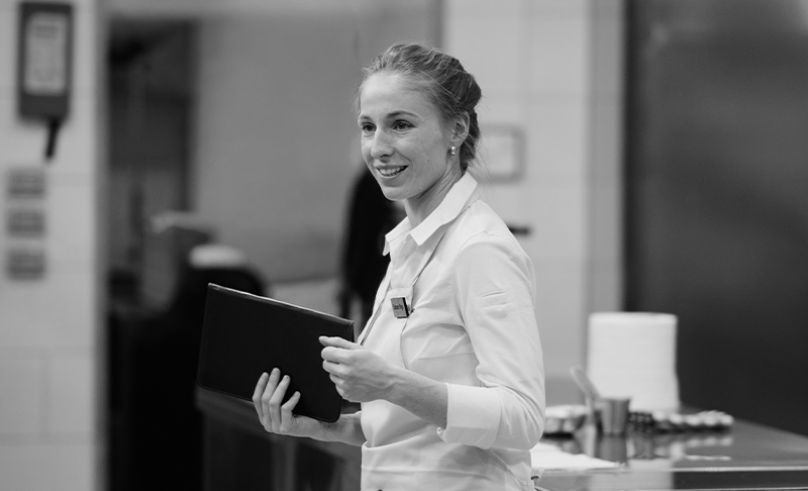
The first official masterclass of 35 Flavors of El Gouna didn’t begin with sugar, butter, or a glossy demonstration. It began with a bin. Or more accurately, with the question of why kitchens fill them so easily — a fitting opening in a town built on sustainability and ethical cuisine as founding principles, from its urban design to its waste management systems and broader hospitality ethos.
In the training kitchens of the German Hotel School El Gouna – an institution that has shaped hospitality talent in El Gouna for years – pastry chef Tamara Rigo, a rising talent shaped within Atelier Moessmer (the restaurant behind three Michelin Stars and a Michelin Green Star), opened the culinary showcase with a session that cut straight to the spine of this year’s programme: sustainability and ethical cuisine not as abstract values, but as daily practices. Her focus was pastry, but the implications stretched far wider.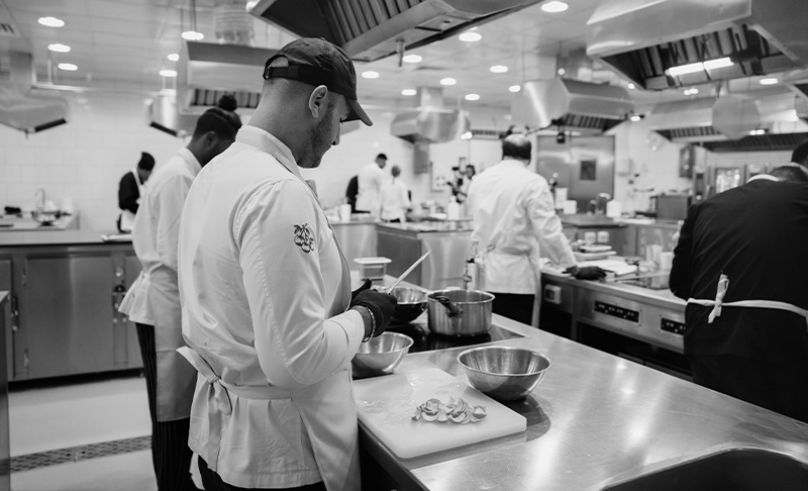 Rigo, who grew up in the Dolomites and built her craft in kitchens defined by precision and restraint, arrived in El Gouna with a singular agenda: to show young chefs what responsibility looks like when it’s embedded in technique. For her, dessert is not the final flourish of a meal. It’s the part of the kitchen where waste — when left unchecked — can multiply quickly. “In 2024 alone, 1.8 billion pounds of food were wasted — one-third of everything produced. Broken down per capita, that’s 160 kilos of food waste per person,” she told the room, holding a tray of citrus peels that would normally never be seen twice.
Rigo, who grew up in the Dolomites and built her craft in kitchens defined by precision and restraint, arrived in El Gouna with a singular agenda: to show young chefs what responsibility looks like when it’s embedded in technique. For her, dessert is not the final flourish of a meal. It’s the part of the kitchen where waste — when left unchecked — can multiply quickly. “In 2024 alone, 1.8 billion pounds of food were wasted — one-third of everything produced. Broken down per capita, that’s 160 kilos of food waste per person,” she told the room, holding a tray of citrus peels that would normally never be seen twice.
Her method throughout the session was practical, almost forensic. Instead of recipes, she offered systems. Herb stems became the base of a clean, aromatic oil. Citrus peels were transformed into powders that could stabilise creams and anchor flavour. This wasn’t a one-way demonstration — it was a collaboration-driven exchange with the young local chefs, who worked alongside her station to station.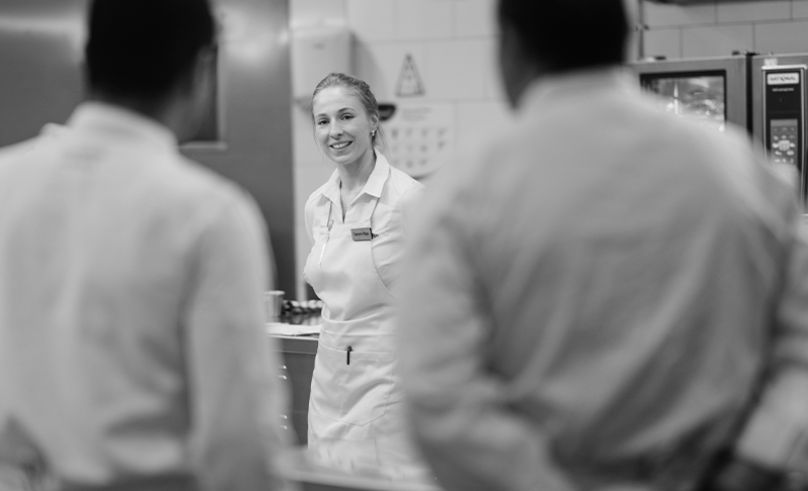 The choice to begin 35 Flavors of El Gouna with this masterclass made a certain kind of sense. El Gouna was built with sustainability and ethical cuisine as founding principles — ideas woven into its urban design, its waste management systems, and its approach to hospitality. If this new culinary platform is attempting to articulate the future of dining, then beginning with the fundamentals of resourcefulness felt less symbolic than inevitable.
The choice to begin 35 Flavors of El Gouna with this masterclass made a certain kind of sense. El Gouna was built with sustainability and ethical cuisine as founding principles — ideas woven into its urban design, its waste management systems, and its approach to hospitality. If this new culinary platform is attempting to articulate the future of dining, then beginning with the fundamentals of resourcefulness felt less symbolic than inevitable.
Rigo navigated the room with an ease that comes from years of repetition. She corrected a whisk angle here, steadied a hand there, emphasising that sustainability — and ethical cuisine — are not things a chef tacks onto a menu. They are shaped through observation, curiosity, and technical awareness. The German Hotel School El Gouna’s chefs responded in kind, engaging not as spectators but as collaborators.
Their questions grew more specific as the afternoon progressed: What should dessert plating really look like? Does the texture of stems dictate ideal infusion time? Can pastry offcuts be recycled more than once without compromising structure? How do you control potent flavours as to not waste them?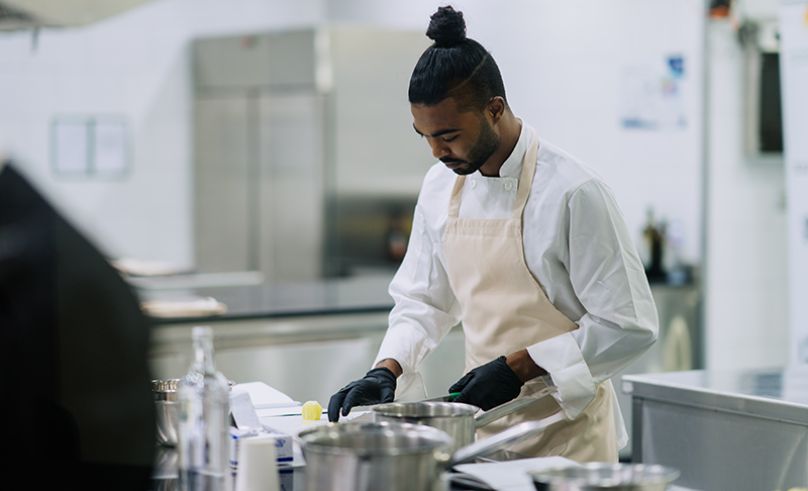 What emerged over the course of the masterclass was a portrait of sustainability and ethical cuisine that aligned closely with El Gouna’s own ethos — one that privileges long-term thinking. If the broader 35 Flavors showcase is designed to connect global talent with local contexts, this first session made the stakes of that exchange plain. Learning to work consciously with ingredients is not a trend but rather a skill set that determines how a culinary culture evolves.
What emerged over the course of the masterclass was a portrait of sustainability and ethical cuisine that aligned closely with El Gouna’s own ethos — one that privileges long-term thinking. If the broader 35 Flavors showcase is designed to connect global talent with local contexts, this first session made the stakes of that exchange plain. Learning to work consciously with ingredients is not a trend but rather a skill set that determines how a culinary culture evolves.
As the city prepared to welcome chefs, producers, and diners for a weekend of dinners and conversations, Rigo’s masterclass stood as the clearest articulation of what 35 Flavors of El Gouna hopes to cultivate: an ecosystem where technique, sustainability, ethical cuisine, and education move in tandem — powered equally by visiting mastery and by the local chefs who will carry these lessons forward.




